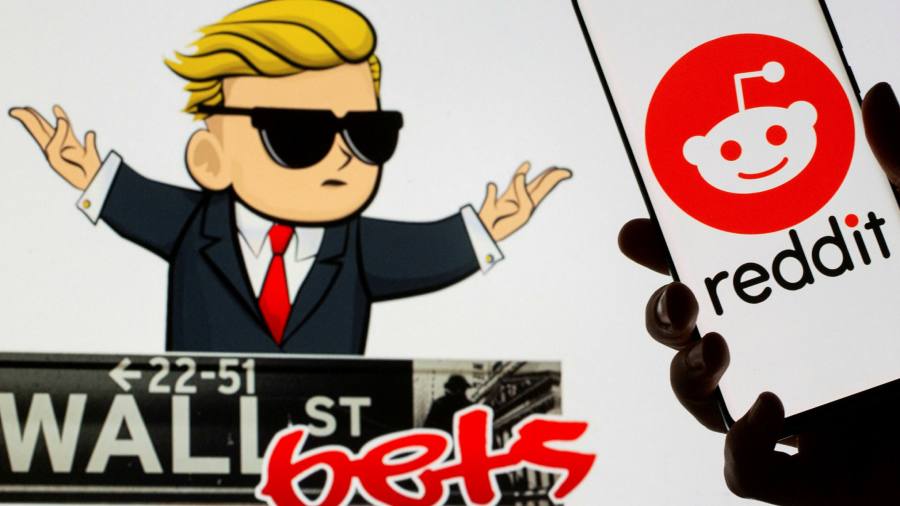[ad_1]
Gordon Gekko, the sharp-suited trader who came to epitomise Wall Street, famously said, “greed is goodâ€. The army of retail investors that has flooded into the shares of video game retailer GameStop has taken Mr Gekko’s advice to heart, and turned it against Wall Street to great effect. The rush of money into what was an unloved stock has crushed some big hedge fund investors and signalled a new development in equity markets, where populism, social media and cheap money have combined to upset the status quo.Â
The flood of speculative retail money into individual stocks has echoes of previous market manias. During the dotcom bubble, day traders used chat rooms and AOL message boards to drive up the share prices of companies that had rebranded themselves as internet stocks. Something similar, but more focused, is happening today. New technology — chat rooms on social media sites, such as Reddit’s WallStreetBets forum, and zero-commission trading apps, like Robinhood — have fuelled the frenzy. This time there is also a palpable sense of anger among many traders, who feel that older generations have cheated them of wealth by mismanaging the economy since the financial crisis.
What also sets the week’s events apart is the manner in which they have unsettled the investment establishment. Hedge funds accustomed to having their own way on short trades — where they bet that the share price of companies will go down — have been overpowered by retail investors and forced to take heavy losses. Many of the small investors say this defeat for big investors is what motivates them, with the little guy for once taking on and defeating the investment Goliaths. It is a sentiment that has its roots in the Occupy Wall Street movement. What today’s retail warriors have proven is that the smart guys are just as vulnerable to excessive market swings as everyone else.
Few ordinary investors are likely to feel sympathy for the hedge funds. But they should not forget that in markets driven by the momentum of passive, index-hugging investment strategies, hedge funds and short-sellers perform an important role in helping to probe corporate performance and improve transparency and price discovery. They have played a central role in helping to uncover frauds such as the Wirecard scandal.
The speculative fervour carries wider risks. Not all of today’s punters will be using savings or government stimulus cheques to bet; some will have borrowed to invest. The use of options trading has only exacerbated the potential downsides for investors. The decision by brokerages to increase margin requirements and, in the case of Robinhood, not to accept trades in GameStop, was a necessary move — even if it sparked the ire of investors and politicians. Regulators will need to tread a fine line: they cannot be seen to be defending the hedge fund Goliaths against retail investors yet they need to ensure an orderly market. The nature of Reddit-based bulletin boards that attract millions of traders means the definition of collusion — normally an issue when policing large institutional investors — may need to be revisited.
The reality is that the shares of GameStop and others will fall. The noise will abate and should not deter long-term investors. But there are broader implications for the credibility of markets. It is important that investing does not become synonymous with gambling for a whole generation of new investors. This would not only be bad for the market but bad for them when they lose — and it would only deepen their antagonism towards Wall Street.
[ad_2]
Source link





